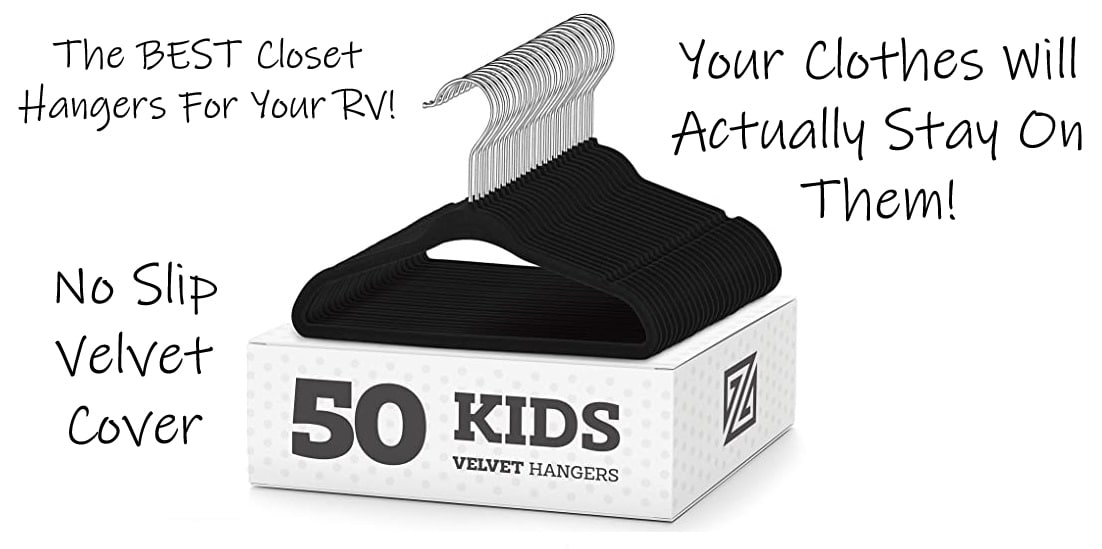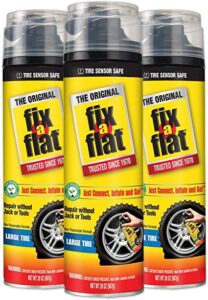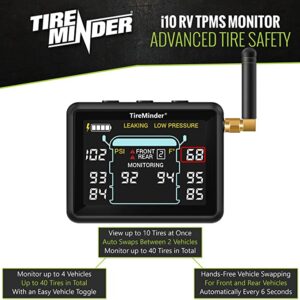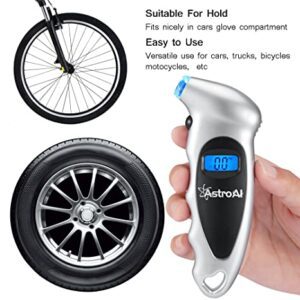Will Nitrogen In Your RV Tires Make Them Explode?
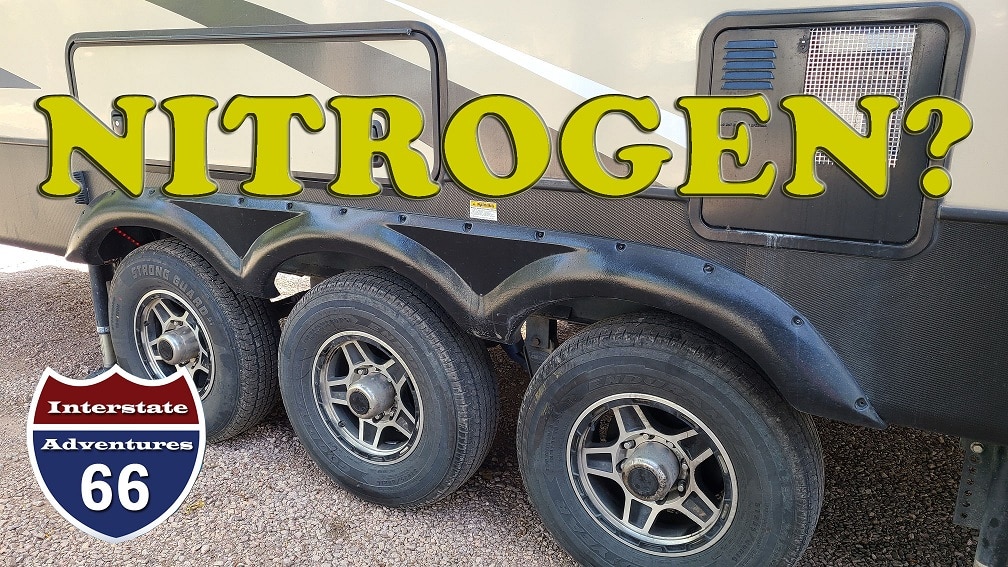 Fill Them With What?!
Fill Them With What?!
More and more frequently people are asking if we run nitrogen in our RV tires. I must admit, every single time someone would ask me it took me a second to process the question in my head before I could answer. The answer was always ‘No’, but then I got to thinking, ‘Should I be?”. Let’s dive into it.
The mixture of the normal air we breathe, and subsequently run through an air compressor and into our RV tires is around 78% Nitrogen, 21% Oxygen, and 1% other gasses. So no, It won’t cause any harm, but more and more people are paying an upcharge to have pure nitrogen put in their RV Tires.
Why Would You Put Nitrogen In RV Tires?
This trend got its start in the world of Motorsports like NASCAR, Indy, Formula etc. The reason behind it was consistent tire pressures throughout the race, since nitrogen does not escape through the rubber in the same way that regular air will when the tires are under severe temperatures, as well as a more consistent pressure change through the heat ranges.
So, for example if your tires are sitting in the Pit on an 80 degree day, and they get thrown on the fastest car on the super speedway, the pit crew knows exactly what the pressure in them is going to be when they get warmed up. Super critical math at 200 miles an hour in the Florida sun in August. Not so much on your half-ton towable RV.
How Do You Refill It When It’s Low?
There are going to be times when for absolutely no reason at all, or because you clipped a curb with the side wall, that your tire will be low on pressure. Some, not all tire shops will be able to refill the nitrogen in your tire for you, but how far away is it? I have been to all of the 48 Continental United States and can not for the life of me remember seeing one sign on the interstate that said the next gas station had a Nitrogen Filling Station.
You can’t drive it there on a ‘flat’ tire anyway, you’ll destroy it. If you pump that can of fix a flat into it, well, that is a mix of compressed air and green goopy stuff. Definitely not the pure nitrogen we are discussing here today.
What Do I Do?
In my honest opinion, and I am but a simple man, and I just run that good ole free air out of whatever air compressor I can find. No but seriously, this may sound like a ‘my daddy and his daddy before him did it this way’ kinds of logic, and maybe it is, but this is one of those times that those old timers were right.
The best thing you can do is check your tire pressure regularly. If checking your tire pressure is something that you just simply aren’t going to do, you can always get a Tire Pressure Monitoring System that will alert you when one of them is low on pressure.
I actually bought one myself over a year ago when we started living in the RV full time. It still hasn’t been installed. I just added Check Tire Pressures to my ‘Leaving Day Checklist’ and while I’m drinking my coffee in the morning, walk around the RV and pop the tire gauge onto the tires. The added benefit of this, you actually look at your tires so if there is a weird wear pattern on the tread, or a gash in the sidewall, you’re going to know about it before trying to beat the pace car up the entrance ramp onto the freeway.
What’s The Verdict?
I would honestly say the answer is a solid No.
You do not NEED to be running nitrogen in your RV Tires. If the tire shop is going to throw it in for free with the 6 new 10 ply tires you just bought, then sure, why not. It isn’t going to hurt anything to have it in there. But if you are going to have to pay 10 or 20 bucks a tire to have it put in, I personally would save that money for the fuel bill at the gas pump. Or, use it to pick up a good quality tire pressure gauge.

